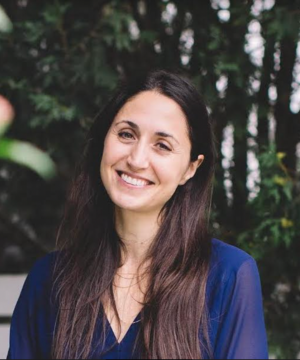
INPCS23 Speakers & Presenters
Sandra Abrevaya
Co-Founder & CEO, Synapticure
Sandra is the mom of spunky 5 and 7-year-old girls. She is a former founding CEO in the nonprofit sector and has served in senior roles for the City of Chicago, the U.S. House of Representatives, the U.S. Senate, the U.S. Department of Education, and the White House.
Sandra is married to and a caregiver for Brian Wallach who was diagnosed with ALS, a currently terminal illness, in 2017 when they were 37 years old and had their whole lives before them. After the diagnosis, Sandra co-founded I AM ALS with her husband to drive an impactful advocacy agenda based on community organizing principles. Sandra is also the CEO and co-founder of Synapticure, a national telehealth company serving people living with ALS, PLS, and Parkinson's.

Anne Basting, PhD
Professor, University of Wisconsin-Milwaukee
Founder, TimeSlips
Anne Basting, PhD, is a professor of English and Director of the Center for 21st Century Studies at the University of Wisconsin-Milwaukee. She is a scholar and artist whose work focuses on the potential for the arts and humanities to transform our lives as individuals and communities. For over 20 years, Basting has researched ways to infuse the arts into care settings with a particular focus on people with cognitive disabilities like dementia. She is author of numerous articles and four books, Creative Care: A Revolutionary Approach to Dementia and Elder Care (Harper One, 2020), The Penelope Project: An Arts-based Odyssey to Change Elder-care (University of Iowa Press, 2016) co-edited with Maureen Towey and Ellie Rose; Forget Memory: Creating better lives for people with dementia (2009) and The Stages of Age: Performing Age in Contemporary American Culture. Named a 2016 MacArthur Fellow, Basting is also the recipient of an Ashoka Fellowship, Rockefeller Fellowship, a Brookdale National Fellowship, The Randy Martin Spirit Award, and numerous major grants across both the arts and social services. She is author and/or producer of nearly a dozen plays and public performances, including Wendy’s Neverland (2019), Slightly Bigger Women (2015) and Finding Penelope (2011), a play inspired by a year of intergenerational conversations about the myth of Penelope from Homer’s Odyssey, and professionally staged at a long term care community. In all her work, Basting is striving toward a moment when the arts are fully infused into care systems.
Basting holds a Ph.D. in Theatre Arts from the University of Minnesota, and a Masters in Theatre from the University of Wisconsin. She is founder and President of the award-winning non-profit TimeSlips Creative Storytelling, an international alliance of artists and caregivers bringing meaning to late life through creativity. Founded in 1998, TimeSlips became an independent non-profit in 2013 and how has over 900 certified facilitators in 48 states and 20 countries.
Basting advises the burgeoning field of arts and health and gives keynote addresses across the world on the power and potential of Creative Care. Basting was Founding Director of UWM’s Center on Age and Community from 2003 to 2013, where she fostered partnerships between scholars, students, and service providers, and translated applied research into innovative educational tools including manuals, films, and social media. Now a Professor in UWM’s Department of English, Basting teaches Community Engagement and Storytelling, and coordinates the Student Artist in Residence program, a year-long experiential learning program in which student artists live in and foster community building in care settings.
Basting’s most recent project, I Won’t Grow Up, was an ambitious reimagining of the story of Peter Pan with 12 rural nursing homes across Kentucky. She is currently guiding a collaboration with Dementia Inclusive Durham to bring Beautiful Questions to people with dementia and transform the answers into a community-wide celebration.

Vanessa Battista, DNP, MBA, CPNP-PC, CHPPN, FPCN
Senior Nursing Director Palliative Care
Dana-Farber Cancer Institute
Vanessa Battista, DNP, MBA, MS, RN, CPNP-PC, CHPPN, FPCN is a board-certified Pediatric Nurse Practitioner and currently serves as Senior Nursing Director of Palliative Care at the Dana-Farber Cancer Institute. Previously, she practiced at the Children's Hospital of Philadelphia, the Columbia University Medical Center, and Children's Hospital Boston. She is currently adjunct faculty at the Johns Hopkins University School of Nursing and previously served as clinical faculty at The Boston College Connell School of Nursing where she developed the Pediatric Palliative Care Masters subspecialty program. She is a member of the ELNEC pediatric faculty and has authored several book chapters and articles. Dr. Battista was a Jonas Nursing Scholar, and the recipient of the ELNEC Award for Excellence, the Columbia University Distinguished Young Alumni Award, and the DNP Leadership Award from Johns Hopkins University. She earned her bachelor's degree from Boston College in psychology, with minors in health sciences and faith, peace, and justice studies; her nursing degree and master's degree from Columbia University School of Nursing; and completed a certificate in Pastoral Ministry at the Boston College School of Theology and Ministry. Dr. Battista obtained her Master of Business Administration and Doctor of Nursing Practice from Johns Hopkins University.
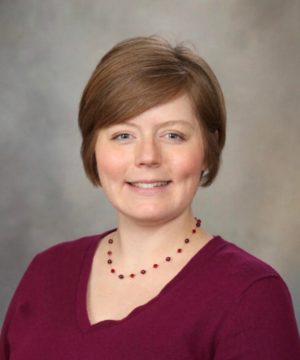
Randi Beyerl, RN, CHPN
Palliative Nurse, Mayo Clinic
Randi Beyerl, RN, CHPN works in a clinic-based palliative care team at Mayo Clinic Rochester. She has been a nurse since 2008 and palliative care nurse since 2016. Current professional roles include guideline development for pediatric to adult palliative care clinic transitions, Reiki provider, nurse scheduling, nursing division chair, and department of nursing council representative. In 2020 she completed the Partners in Policymaking program through the Minnesota Governors Council on Developmental Disabilities, an advocacy and leadership program that gives people with disabilities and their families the resources and skills to communicate effectively with elected officials. Randi is passionate about improving systems to better care for people.

Bradley Boynton, RRT
Respiratory Therapist, Mayo Clinic
Brad Boynton, RRT is Clinical Specialist with the Department of Anesthesiology and Perioperative Medicine - Respiratory Care, Mayo Clinic, Rochester, MN. He has been a practicing respiratory therapist for 25+ years. Brad currently works in out-patient pediatric pulmonary, aero-digestive, Cystic Fibrosis, ALS, and adult bronchiectasis clinics. He currently serves as co-chair of the Legislative Committee for the Minnesota Society of Respiratory Care (MSRC). Brad received his AAS-Respiratory Care from Rochester Community College/Mayo School of Health Science, Rochester, MN. He received a BS in Health Administration from the University of St. Francis, Joliet, IL.
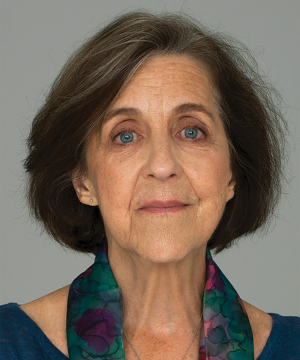
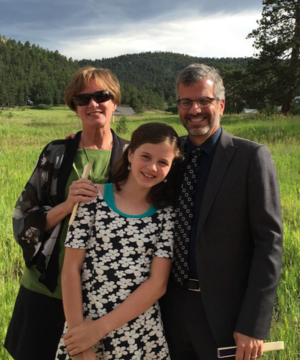
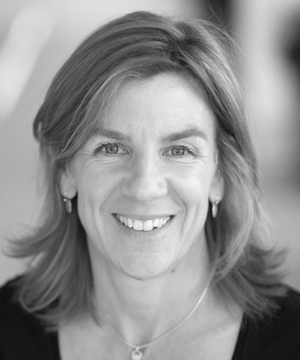
Polly Dawkins
Executive Director, Davis Phinney Foundation
Polly brings 25 years of professional expertise to the Davis Phinney Foundation. Her experience includes 13 years working in engineering and international operations for a satellite communications provider and starting a local charity chapter of an international literacy organization. Polly holds an MBA from Thunderbird School of Global Management and a BA in International Studies from Earlham College. Her management skills align with her drive to help people with Parkinson’s by providing resources, education, connections, and actionable research to improve their quality of life. When she’s not at her desk, visiting Parkinson’s communities, or fundraising with donors, you’ll find her creating music lists for her indoor cycling classes, cycling around Colorado, swimming outdoors, or hosting family and friends from faraway countries. Her energy sources? Sunshine and cold brew.
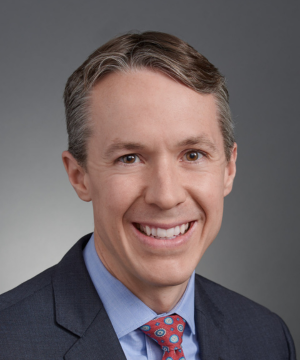
Corey Fehnel, MD, MPH
Assistant Professor of Neurology, Harvard Medical School
Division Chief, Neurocritical Care and Hospital Neurology, Department of Neurology, Beth Israel Deaconess Medical Center
Corey Fehnel MD, MPH, is a neurointensivist specializing in the critical care of diseases affecting the nervous system. His research focus lies in the intersection of aging, critical care neurology, and palliative care. Dr. Fehnel uses the tools of health services research to better describe outcomes among older persons with critical neurological illness. Using nationwide Medicare datasets he establishes trends in utilization, and identifies key determinants associated with favorable and unfavorable outcomes. As an attending neurointensivist at Beth Israel Deaconess Medical Center, the needs of his patients guide his research questions.
Dr. Fehnel’s previous work has examined prediction modeling of hospital readmission after acute ischemic stroke, as well as outcomes and location of long-term care among older patients receiving decompressive hemicraniectomy (removal of a portion of the skull) for severe ischemic stroke. He has also defined hospital characteristics associated with outcomes and quality of care for older patients with aneurysmal subarachnoid hemorrhage.
In addition to studying outcomes, Dr. Fehnel is particularly interested in intensive care symptom assessment and management among older brain injured patients receiving palliative care.
His research has been funded by the American Academy of Neurology/American Brain Foundation and the National Institute on Aging.
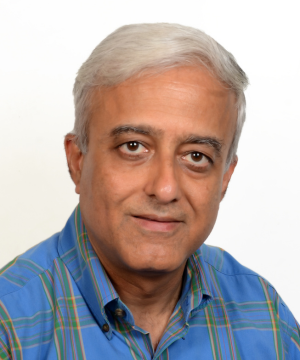

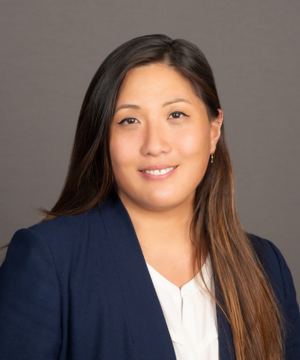
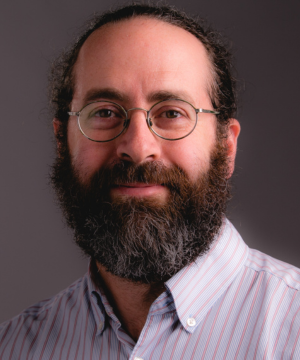
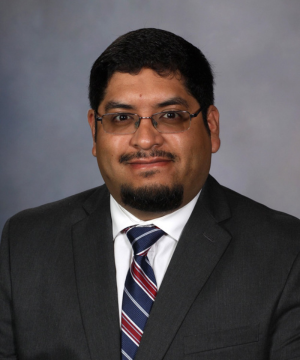

Winnie Lau, MD
Assistant Professor, University of North Carolina-Chapel Hill
Winnie Lau is an Assistant Professor of Neurology and Neurosurgery in the Division of Neurocritical Care at the University of North Carolina-Chapel Hill, and Program Director for the Adult Neurology Residency Program. She has led quality improvement programs introducing palliative care and hospice to patients with severe acute brain injury and facilitating access to inpatient hospice for mechanically ventilated patients. Dr. Lau chairs quality improvement programs, including the ICU-Palliative Care collaborative, a multidisciplinary committee of stakeholders from all intensive care units at UNC Medical Center, Nursing, Case Management, and program managers from our Mortality Reduction Program; and the Donor Resource Team, a quality program that monitors our CMS compliance for organ donation referral and transplant. She has led curriculum development in Neuropalliative Care through the AAN writing committee for Neuropalliative Care Core Curriculum, participation in palliative care communication courses including VitalTalk and Education in End of Life and Palliative Care (EPEC), and leadership training in the Academy of Educators at the University of North Carolina.

Danielle Leach, MPH, RN
Chief of Government Relations and Advocacy, National Brain Tumor Society
Danielle is an experienced health non-profit professional with a proven track record in patient advocacy and education, government relations, fundraising, advancing legislative and regulatory policies, stakeholder engagement and advocating for cancer research. In her current role at National Brain Tumor Society, Danielle leads the development and implementation of overall public policy and government relations agenda, strategy and organizational capacity building, and external coalition relations and participation. She works to ensure the brain tumor community is empowered through advocacy and stakeholder engagement to advance research and quality life. Danielle is a dedicated volunteer and grassroots advocate for cancer and children's issues. She is driven by the death of her son Mason at age 5 from a pediatric brain in 2007 as well as a being a sibling of a childhood cancer survivor. She chose to dedicate her career early on to ensuring patients and families have a strong voice in advocacy, research and care process. She led several public policy initiatives related to childhood cancer research and funding, driving cancer control program development and implementation. She is the emeritus Co-Chair of the Alliance for Childhood Cancer, a national coalition tackling childhood cancer policy issues, where she spearheaded strategy and implementation of STAR Act passage, the most comprehensive childhood cancer bill ever passed in Congress increasing childhood cancer funding by $150 million in over five years. She serves on National Cancer Institute’s Pediatric and Adolescent Solid Tumor Steering Committee and is the Co-Chair Emeritus of its Patient Advocate Steering Committee. She completed her term on NCI’s National Council of Research Advocates, and worked on Vice President Biden’s Cancer Moonshot initiative, as a patient advocate on the Pediatric Cancer Working Group. Danielle was recognized in 2018 with the ASCO Partners in Progress award and the Rare Disease

Anne Leonard, MPH, RN
National Senior Director, Science and Medicine, American Heart Association
Anne Leonard MPH, BSN, RN, FAHA, CCRC, is a National Senior Director Science and Medicine with the American Heart Association National Center. She has worked with Stroke/Neuroscience since 1987, when she worked for the Department of Neurology at the University of Texas Health Science Center at San Antonio, on the Stroke Prevention in Atrial Fibrillation Study (SPAF - NIH – NINDS funded). During her 20-year tenure with this Department, she also coordinated other stroke studies in Hyperacute Acute Stroke Treatments, and Primary/Secondary Prevention of stroke studies and novel early phase neuroprotective agents. Her work on the research studies included the role of study coordinator and sub-investigator. She also was involved in quality improvement projects within the hospital’s she was affiliated with. In 2007 she was recruited by the AHA and was hired as a Science and Medicine Advisor. At the time she worked on several AHA Science portfolios. She was then recruited back to the UTHSCSA in the Neurosurgery Department in 2008 but stayed part-time with the AHA. She worked the last 5 years of her career at the UTHSCSA with the Department of Neurosurgery, coordinating and executing the clinical research trials in Intracerebral Hemorrhage (ICH - MISTIE and CLEAR IVH), both surgical intervention as well as an epidemiology (ERICH) study for ICH. During this time, she was involved with hospital staff, and patient families in dealing with patients who expected to die. She also served as the Interim Stroke Coordinator in the five-hospital system for one year and consulted with this system thereafter. During her years at the Health Science Center, she taught residents, medical students, nurses, paramedics, and allied health professionals about stroke. She rejoined the AHA/ASA in February 2013 as a full-time Science and Medicine Advisor. She is a National Senior Director Science and Medicine and has served as an AHA science lead for several of the AHA Science councils -Stroke, Hypertension and Clinical Cardiology Councils as examples.
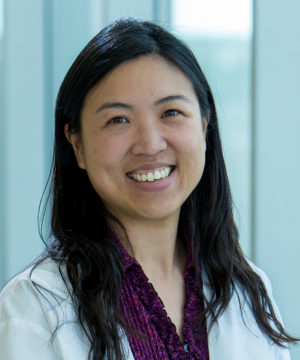
Hillary Lum, MD, PhD
Associate Professor of Medicine, University of Colorado
Hillary Lum, MD, PhD is an Associate Professor of Medicine at the University of Colorado in Aurora, Colorado, USA. She is a geriatrician and palliative medicine physician. As a researcher, she is passionate about implementing care interventions for older adults with serious illnesses, including people living with dementia and their family care partners. Clinically, she provides primary care for older adults and their families of choice. Her work includes interventions related to advance care planning, communication interventions through the patient portal, and dementia support programs. Her research team seeks to actively partner with patients, family members, healthcare practitioners, and community organizations.

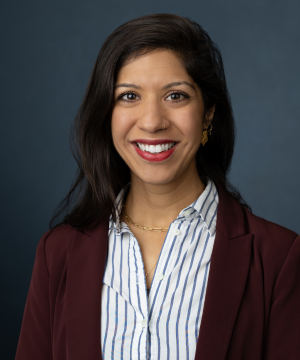
Ambereen K. Mehta, MD, MPH, FAAHPM
Associate Professor, Johns Hopkins Bayview Medical Center
Ambereen K. Mehta, MD, MPH, FAAHPM is an Associate Professor in the Department of Medicine with the Palliative Care Program and Department of Neurology at Johns Hopkins School of Medicine, where she graduated from the Johns Hopkins Bayview Medical Center Internal Medicine residency program. In addition to seeing patients with the palliative consult service, she is also the only palliative care physician integrated in the Johns Hopkins Center for Specialty ALS Care. She completed her fellowship in Hospice and Palliative Medicine at the National Institutes of Health in 2016. After which she joined the faculty at the University of Virginia where she was also medical director of their inpatient hospice unit and Associate Program Director of their Hospice and Palliative Medicine fellowship. In 2018, she joined the faculty at UCLA where she developed the outpatient neuropalliative program in the ALS clinic. Her research interests include primary palliative care education and neuropalliative care. She is a Fellow of the American Academy of Hospice and Palliative Medicine. Additionally, she chairs the Strategic Communications Committee of the International Neuropalliative Care Society and co-chairs the Northeast ALS Consortium Palliative Subcommittee. She has served as past chair of the Neuropalliative SIG of the American Academy of Hospice and Palliative Medicine.
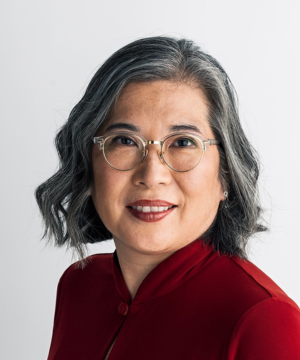

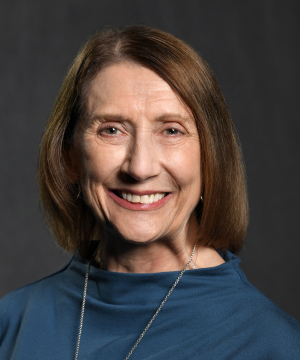
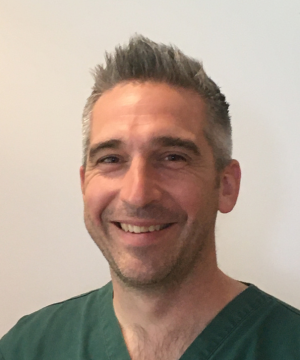
Ed Richfield, PhD, MBChB, MRCP
Consultant Geriatrician, North Bristol NHS Trust (UK)
Ed Richfield is a Consultant geriatrician at North Bristol NHS Trust in the UK, sub-specialising in care for people with Parkinson's disease. His PhD explored palliative care for people with PD and since becoming a consultant this has been an area of clinical practice, developing a specialist PD palliative care service in Bristol, alongside his work in general geriatric medicine. Ed works with the neurology academy, delivering the palliative care elements of the Parkinson's Masterclass and, most recently, leading the faculty developing and delivering a Palliative care masterclass focused on care for people with PD, ALS, MS and Dementia. Ed's other roles include sitting on committees related to PD and neuropalliative care for the British Geriatric Society (Movement disorders group), Association of Palliative Medicine (neuropalliative group) and INPCS (Clinical committee lead).

Duygu Selcen, MD
Neurologist, Mayo Clinic
Duygu Selcen is a consultant at the Mayo Clinic and is Professor of Neurology and Pediatrics. She earned her medical school degree at the Hacettepe University Medical School. After finishing the pediatric residency at the Hacettepe University Ihsan Dogramaci Children's Hospital, she completed pediatric neurology residency at the Wayne State University Children’s Hospital. Dr. Selcen joined the Mayo Clinic after completing two-year fellowship in muscle diseases and muscle pathology at the Mayo Clinic and a year of Mayo Foundation Scholarship. Her practice involves caring for patients with neurological and neuromuscular diseases, interpreting muscle biopsies and doing research. The research of Dr. Selcen focuses on neuromuscular diseases of children and adults especially of those involving the muscle and the neuromuscular junction.

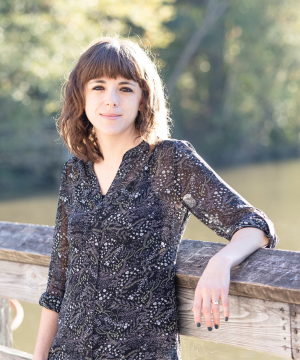
Jessica Shurer, MSW, LCSW
Director, Clinical Affairs and Advocacy, CurePSP
Jessica Shurer, MSW, LCSW, is the Director of Clinical Affairs and Advocacy at CurePSP. In this role, she oversees all of CurePSP’s efforts aimed at increasing support, education and awareness of progressive supranuclear palsy (PSP), corticobasal degeneration (CBD), and multiple system atrophy (MSA) and manages the CurePSP Center of Care program, a network of 32 medical centers dedicated to the comprehensive care of PSP, CBD and MSA. Prior to joining the team at CurePSP in October 2021, she served as the Center Coordinator and Clinical Social Worker of the Movement Disorders Center at the University of North Carolina at Chapel Hill, a Parkinson’s Foundation Center of Excellence and CurePSP Center of Care. She had been in her previous position since graduating from UNC Chapel Hill with her Master of Social Work in 2012. She has served on the Board of Directors for CurePSP, Scientific Advisory Board of the Davis Phinney Foundation, and several national task forces and committees with the Parkinson’s Foundation. Her clinical and research interests include the psychosocial needs of navigating neurodegenerative disease, integrated healthcare models, and palliative and end-of-life care.
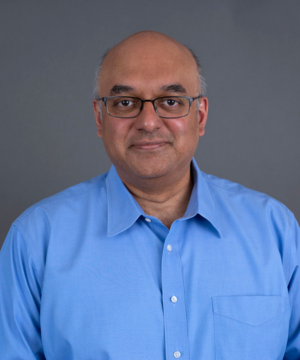
Neil Thakur, PhD
Chief Mission Officer, ALS Association
Neil Thakur, Ph.D., is Chief Mission Officer for the ALS Association. He brings more than two decades of experience as a public health expert to the fight against ALS. He has led The ALS Association’s mission programs – research, care services, and advocacy – since 2018. Before joining the Association, Dr. Thakur served in the National Institutes of Health (NIH) Office of the Director where he managed the world’s largest policy to make research papers free to read, and co-chaired the White House taskforce that lead to the requirement that all federal science agencies adopt similar policies. He also spent a year on detail to the US Senate Special Committee on Aging, and served in the Office of Research and Development at the Department of Veterans Affairs. Dr. Thakur has received numerous federal awards, including the Secretary for Health and Human Services’ award for Meritorious Service. Dr. Thakur holds a Ph.D. in Health Policy from Yale University School of Public Health.
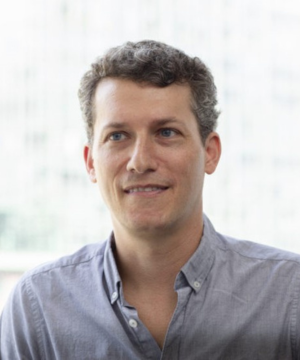
Brian Wallach, JD
Co-Founder & Co-Board Chair, Synapticure
Brian Wallach was diagnosed with ALS in November 2017. At his diagnosis, he was 37, with two daughters under three. Since then he has become an outspoken, well-known, and impactful patient advocate. He is married to I AM ALS co-founder, Sandra Abrevaya, whom he met on the 2008 Obama campaign. Brian was an avid skier who ran the 400 at Yale. His favorite movie is Big Fish and his favorite band is the National.
In addition to co-founding the nonprofit I AM ALS, Brian was an Assistant United States Attorney in the Northern District of Illinois from August 2014 to April 2018, and from July 2011 to April 2013, Brian served as Senior Vetting Counsel at the White House in the Obama Administration. Brian received his BA from Yale University and his JD from the Georgetown University Law Center. He has also co-founded Synapticure, a virtual clinic and telehealth company providing personalized, wrap-around care for those living with neurodegenerative diseases.
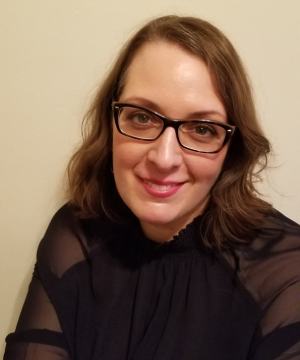

Nicole Yarab, BA, RN
Vice President, Clinical Affairs and Information & Resources, Parkinson's Foundation
Nicole Yarab, RN, BA, is the Vice President of Clinical Affairs and Information & Resources at the Parkinson's Foundation. She is the co-PI, alongside Dr. Benzi Kluger, for the PCORI-funded grant, Implementing Team-Based Outpatient Palliative Care Across Parkinson's Foundation Centers of Excellence. Nicole oversees the Foundation's Global Care Network and Helpline programs and focuses on improving reach and optimizing quality care delivery and outcomes for people living with Parkinson’s and their care partners. She is a registered nurse with 26 years of experience that includes direct patient care, patient and professional education, clinical trial and interdisciplinary care coordination, program management and development, and health non-profit leadership. She has spoken nationally and internationally about patient-centered care and utilizing a multidisciplinary approach to optimize outcomes for people living with a neurodegenerative disease.
RETURN TO INPCS23 ONSITE MAIN PAGE

